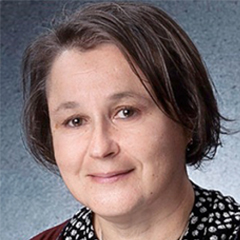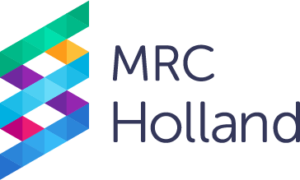Genomic Imprinting – from Biology to Disease
10–12 March 2025
Wellcome Genome Campus, UK and Virtual
Summary
Our third conference on genomic imprinting will highlight advances in imprinting research and explore how understanding the biology of diseases can translate into improved clinical care.
Session themes will focus on imprinting gene function and physiology, the life cycle of imprinting, and X-inactivation. We will explore epigenetic mechanisms, as well as new mechanisms of imprinting regulation. Disordered imprinting in human disease and therapeutics of imprinting disorders will be further highlights.
This multidisciplinary meeting will bring together basic research scientists, healthcare professionals, and others from different disciplines. The conference will provide opportunities to share expertise in genomic imprinting and imprinting disorders, as well as the chance of forging cross-disciplinary collaborations.
The programme will include invited talks, oral presentations selected from abstracts, posters, poster pitches, panel discussion, presentation of clinical cases and networking opportunities.
This conference will run back-to-back with Epigenomics of Common Diseases 2025.
Programme
The conference run from approximately 12:00 on Monday 10 March until approximately 14.00 on Wednesday 12 March 2025.
Discussions will focus on a variety of exciting topics, including
- X-inactivation
- Life cycle of imprinting
- Epigenetics mechanisms and therapeutics of imprinting disorders
- Imprinting gene function and physiology
- New mechanisms of imprinting regulation
- Disordered imprinting and human disease.
Organisers and speakers
Scientific programme committee

Marisa Bartolomei
University of Pennsylvania, USA

Thomas Eggermann
University Hospital Aachen, Germany

David Monk
University of East Anglia, UK

Irene Netchine
Sorbonne University, France
Keynote speakers

Gavin Kelsey
Babraham Institute, UK

Marilyn Renfree
University of Melbourne, Australia
Confirmed Speakers

Alejandro Burga
Institute of Molecular Biotechnology (IMBA) Vienna, Austria

Justin Davies
University of Southampton, UK

Jeannie Lee
Harvard Medical School, USA

Eloise Giabicani
Sorbonne University, France

Courtney Hanna
University of Cambridge, UK

Giovanni Battista Ferrero
University of Turin, Italy

Yong-Hui Jiang
Yale School of Medicine, USA

Ros John
University of Cardiff, UK

Eamonn Maher
Aston Medical School, UK

Daan Noordermeer
Université Paris-Saclay, France

Edda Schulz
Max Planck Institute for Molecular Genetics, Germany

Piroska Szabó
Van Andel Institute, USA
Registration and accommodation
Registration deadline: Tuesday 11 February 2025 (In-person)| 4 March 2025 (Virtual) at 23.59 GMT
| In-person Registration |
Fee |
| Student/trainee | £396 |
| Academic/non-profit organisation | £496 |
| Healthcare professional | £496 |
| Commercial/for-profit organisation | £596 |
| Onsite accommodation | £214 |
The in-person registration fee includes:
- Full access to scientific programme: oral and poster presentations, and networking on campus
- Access to the online conference portal to network with online participants
- Meals (lunch and dinner) and refreshments during the conference. Breakfast will be provided for delegates who have booked onsite accommodation.
- Recordings of the live-stream sessions, which will be available ‘on-demand’ for four weeks after the event ends
| Virtual Registration | Fee |
| Delegates from LMICs* | Free |
| Student/trainee | £55 |
| Academic/non-profit organisation | £105 |
| Healthcare professional | £105 |
| Commercial/for-profit organisation | £165 |
Virtual registration fee includes:
- Access to the virtual event portal (Log in details will be emailed a few days before the event starts)
- Live-stream sessions, including posters and online networking channels
- Recordings of the live-stream sessions, available ‘on-demand’ for four weeks after the event ends.
* To promote more inclusive scientific discussions with international colleagues at our conferences, delegates based in Lower and Middle-Income Countries can register for free (see list of countries here).
Payments: Please note that payment can only be made with Mastercard or Visa credit cards.
If you are an editor or journalist, please contact the conference organiser for more information about the discounted fee.
Accommodation
Booked accommodation is for the nights of 10 and 11 March 2025.
Please note: there is limited onsite accommodation and this will be allocated on a first-come, first-served basis; therefore, early registration is recommended. If you wish to book campus accommodation either side of the conference dates, please contact the Hinxton Hall Conference Centre directly.
Accommodation services phishing scam – please be vigilant. More information.
Travel visas
Citizens of many countries can travel to the UK for a course without needing a visa.
Please check the UK government website for visitor information
https://www.gov.uk/standard-visitor.
Confirmed attendees requiring a letter to support a visa application should contact the conference organiser.
Financial assistance
Bursary deadline: Tuesday 10 December 2024 at 23.59 GMT
Wellcome Connecting Science offers registration bursaries (usually up to 50% of the registration fee) to those who would benefit from attending the conference but face financial barriers to attending events. Priority is usually given to PhD students, applicants from lower and middle income countries, or those from underrepresented / minoritised groups. Other early career researchers will be considered if funds allow. We strongly encourage applicants to submit an abstract on their research results or ongoing project before the bursary deadline. Final edits can be made to the abstract up until the abstract deadline. Bursary applications without abstracts will only be considered in exceptional circumstances.
To apply for funding support, please register and then select that you want to apply for a bursary. This will direct you to the online application form. Please be prepared to explain why you need support and how you will benefit from attending the conference. Once you have submitted the application form, you will be emailed an abstract portal link. Please use this to submit an abstract before the bursary deadline.
Additional funding opportunities
Visit our support page for information on financial support, including carer grants to help delegates with the costs of caring for children or dependent family members while attending a course or a conference.
Abstracts
Abstract deadline: 15 January at 23:59 GMT
We welcome abstracts from all areas relevant to the main themes of the meeting for both oral and poster presentations. Several oral presentations will be chosen from the abstracts submitted.
To submit an abstract, you must first register for the conference. Once your registration is completed, you will be emailed a link to submit to the abstract submission portal.
Please contact us if you require assistance submitting an abstract.
If you wish to edit your abstract following submission, please use the link in the abstract acknowledgement email. Abstracts should be submitted and, if desired, edited by the deadline. The scientific programme committee will then assess your abstract and you will be notified about 2 weeks after the deadline whether you have been selected to present an oral or poster presentation.
If you require acknowledgement that your abstract has been accepted earlier than this, please contact the conference organiser.
Poster boards onsite will accommodate 118 cm high by 84 cm wide (A0-portrait) of printed material. Accepted abstracts will appear in the conference programme book; poster board numbers will be allocated at the conference. All those accepted for a poster presentation will be given the opportunity to upload a short video describing their work.
Sponsors
With thanks to our sponsors:
If you are interested in supporting this meeting, please contact the sponsorship manager.
See our sponsorship page for information about the benefits.
Testimonials
Feedback from our last Genomic Imprinting conference in 2023:
‘Excellent conference. Nice balance of lab and clinical research. Varied and interesting talks and posters. Excellent representation from imprinting experts internationally. Well organised’.
‘Fantastic set of speakers, loads of time for networking, plenty of space around posters for discussion, great location with most people on site for the entire time’.
‘Giving a short talk on our recent (unpublished) findings was much appreciated, and allowed a huge amount of feedback, critical discussion and overall interest’.


